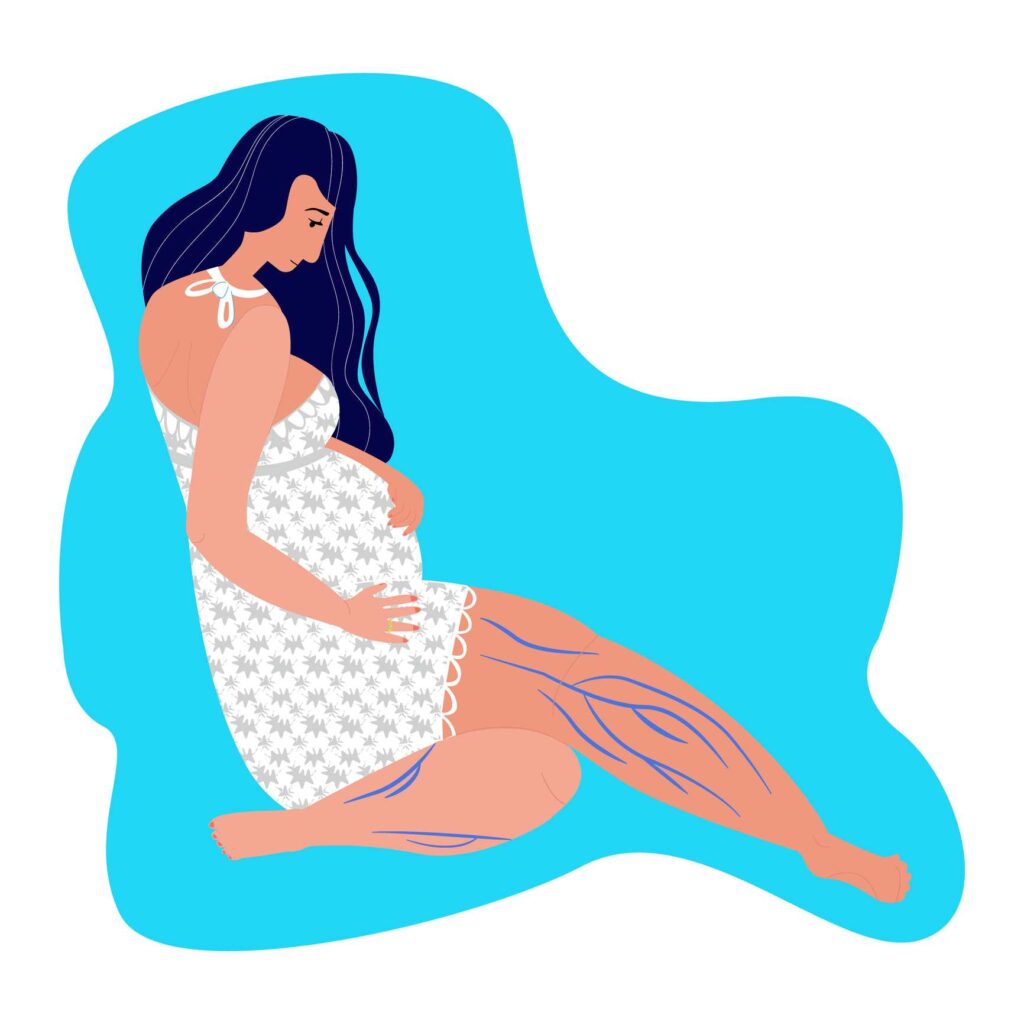Varicose Veins and Pregnancy

Are varicose veins during pregnancy inevitable? No, but they’re fairly common. Many women who have never had varicose veins develop them during pregnancy, and women who already had them may find that they get worse. You’re more likely to get them if they run in your family, and you may find that they disappear, or at least improve, after you have the baby.
- What are varicose veins? Varicose veins are veins that are swollen or bulging near the surface of the skin. They can be blue, red, or purple, and may be ropelike in appearance. Varicose veins are most common on the legs, although they can happen in other parts of your body during pregnancy. In fact, hemorrhoids are actually varicose veins in the rectal area. Varicose veins can make your legs feel heavy or achy, or make the skin around the vein itch, throb, and burn, but some people never experience discomfort from varicose veins.
- Why do varicose veins happen during pregnancy? A woman’s growing uterus puts pressure on the inferior vena cava, the large vein on the right side of the body. Because veins return blood from the extremities to the heart, the leg veins have to work especially hard to fight gravity. Pregnancy increases this workload because the amount of blood in the body increases. What’s more, as progesterone levels rise, the walls of your blood vessels relax. If you’re overweight, carrying multiples, or have to stand for long periods, additional pressure is placed on the veins.
- Can varicose veins be prevented? You can reduce your risk of varicose veins by exercising daily, eating a well-balanced diet, and staying within your recommended weight gain. Elevating your legs and taking frequent breaks when you have to stand or sit for long periods can also help. Don’t sit with your legs crossed because this can impede blood flow. If you’ve got varicose veins already, compression pantyhose can help alleviate your symptoms and keep your condition from getting worse.
- Should pregnant women seek varicose vein treatment? Varicose veins during pregnancy are not usually serious, so treatment can typically wait until after the baby is born. In some cases, though, people with varicose veins can develop blood clots. A small blood clot may feel hard and cord-like, and can cause the area around it to be tender, painful, red, or hot. This requires the attention of your healthcare provider to make sure it’s not progressing to deep vein thrombosis, which can be life-threatening. You should also contact your doctor or midwife if one of your legs becomes severely swollen, you develop leg sores, or the skin near your veins changes color.
If you’re seeking the very best care for your vein and blood flow issues, trust the board-certified physicians at the Arizona Vein & Laser Institute. Using the most advanced technology, the vascular and cardiovascular surgeons at the Arizona Vein & Laser Institute provide care for all types of venous diseases. With over 40 years of experience, our team of experienced physicians can devise the right treatment plan to address your venous disease problems. For more information contact us through our website.
